Quartz countertops are renowned for their exceptional stain resistance, making them a popular choice for kitchens and bathrooms. The stain-resistant properties of quartz arise from its non-porous nature. Unlike natural stones such as granite or marble, quartz is engineered by combining around 90-95% crushed natural quartz crystals with resins, polymers, and pigments. This process results in a surface that is highly resistant to liquids permeating its structure, rendering it almost impervious to stains.
The non-porous quality of quartz countertops means that liquids, such as red wine, coffee, or oil, cannot penetrate the surface. This is a significant advantage in the kitchen, where spills are inevitable. The non-absorbent nature of quartz makes it particularly well-suited for areas where maintaining a clean and hygienic surface is paramount, such as food preparation spaces.
Quartz’s resistance to stains goes beyond liquid spills. It also extends to other substances commonly found in kitchens and bathrooms, including acidic liquids like lemon juice or vinegar. Unlike natural stones that may react negatively to acidic substances, quartz remains unaffected, preserving its pristine appearance over time. This durability ensures that the countertop can withstand the challenges of everyday use without compromising its stain resistance.
Homeowners with busy lifestyles appreciate the ease of cleaning and maintaining quartz countertops. Stains can typically be wiped away with a mild detergent and a soft cloth. The absence of pores on the surface eliminates the need for sealing, a common requirement for natural stones, making quartz a low-maintenance option. This convenience is especially beneficial for those who want a beautiful and functional kitchen without the hassle of rigorous upkeep.
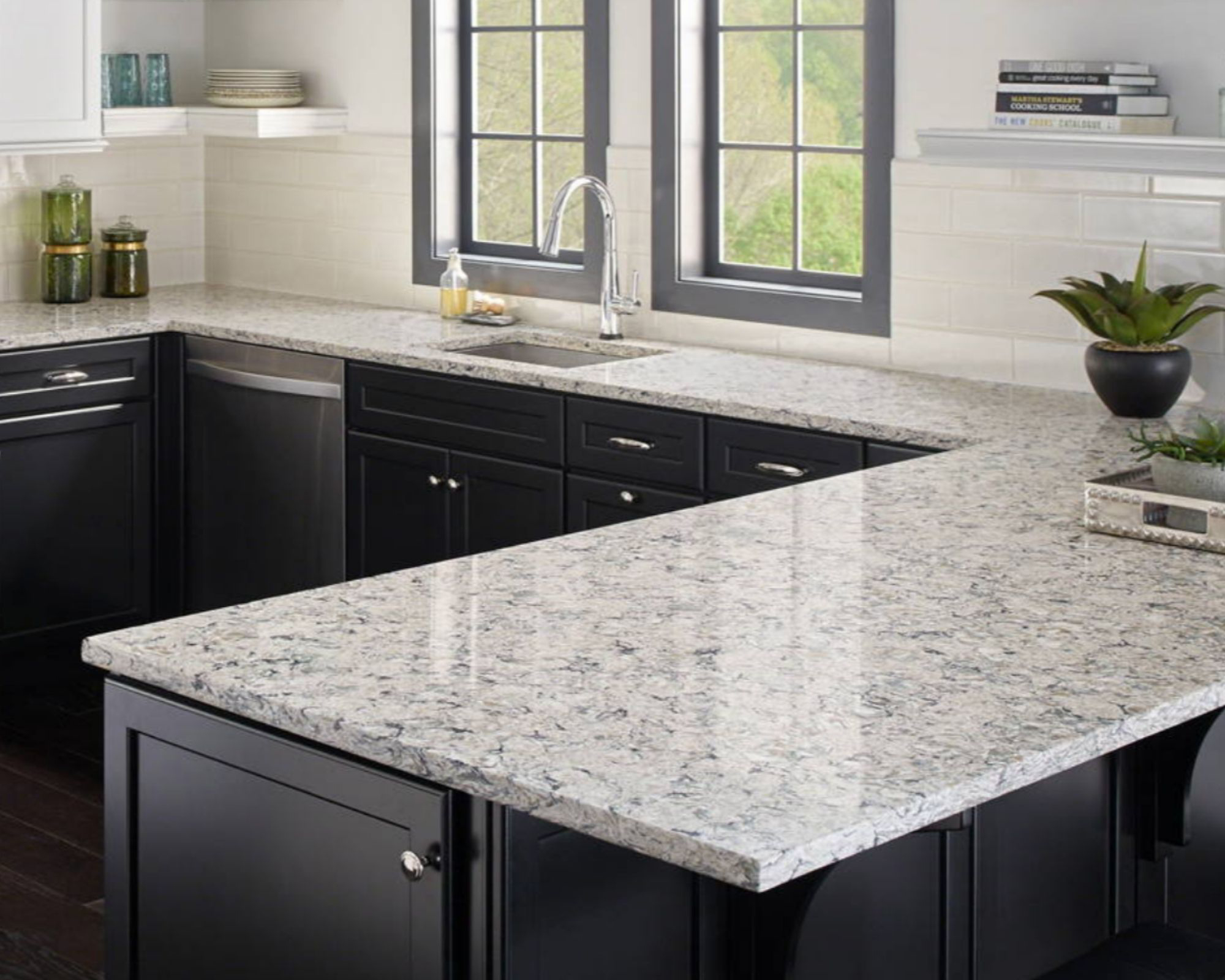
Quartz countertops are also highly resistant to bacteria and mold growth due to their non-porous composition. The absence of microscopic pores makes it difficult for microorganisms to find a conducive environment for colonization. This feature not only contributes to a healthier kitchen but also aligns with modern hygiene standards, making quartz an attractive choice for families concerned about maintaining a clean and sanitary environment.
The stain resistance of quartz countertops is a result of rigorous engineering and testing. During the manufacturing process, the crushed quartz crystals are combined with resins that act as a sealant, creating a dense and impermeable surface. This engineered structure is then subjected to quality control measures to ensure that the final product meets high standards of durability and stain resistance.
While no material is entirely immune to damage, quartz countertops provide a robust defense against staining. Unlike natural stones that may require periodic resealing to maintain their stain resistance, quartz maintains its protective barrier throughout its lifespan. This longevity contributes to the cost-effectiveness of quartz countertops, as homeowners are not burdened with the recurring expense and effort of resealing.

The stain resistance of quartz countertops extends to heat resistance as well. While it’s advisable to use trivets or hot pads to protect the surface from extreme heat, quartz can withstand moderately high temperatures without suffering damage. This makes it a practical choice for kitchen spaces where hot pots, pans, or cooking utensils are in regular use.
One of the notable advantages of quartz countertops is their uniformity in color and pattern. Unlike natural stones, where variations are inherent, quartz provides a consistent appearance throughout the entire slab. This not only contributes to a sleek and modern aesthetic but also ensures that any potential stains or blemishes are less noticeable, maintaining the countertop’s visual appeal.
Homeowners with quartz countertops often find peace of mind knowing that their surfaces can resist the most common causes of stains. Whether dealing with accidental spills, splatters from cooking, or everyday food preparation, the stain resistance of quartz allows for easy cleanup, minimizing the chances of permanent discoloration. This quality is especially valued in households where maintaining a pristine kitchen is a priority.
Quartz countertops are an ideal choice for those who prioritize stain resistance but also desire a wide range of design options. The manufacturing process allows for the incorporation of various pigments, resulting in a diverse array of colors and patterns. This means homeowners can choose a quartz countertop that not only suits their practical needs but also aligns with their design preferences, ensuring both functionality and aesthetics.
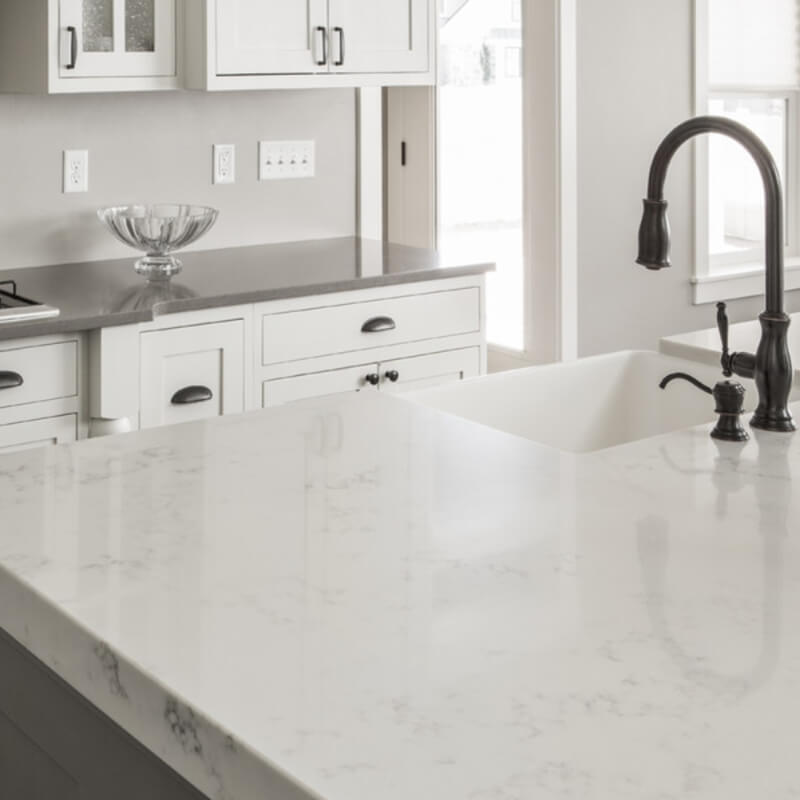
When we talk about design, quartz countertops are versatile enough to be utilized in various settings. Their stain resistance makes them suitable for both kitchens and bathrooms, where spills and moisture are commonplace. The ability to seamlessly integrate into different spaces while maintaining their stain-resistant qualities enhances the overall appeal of quartz countertops as a practical and attractive design choice.
The stain resistance of quartz countertops is an investment in long-term durability. The engineered structure ensures that the countertop maintains its resistance to stains and spills, contributing to its longevity. Homeowners can have confidence that their quartz countertops will retain their beautiful appearance and functionality for many years, providing a reliable and enduring surface in the heart of their homes.
The stain resistance of quartz countertops is a key factor that has contributed to their widespread popularity. Engineered to be non-porous and impermeable, quartz provides a durable and low-maintenance surface that is highly resistant to stains, spills, and bacterial growth. This, coupled with its versatility in design and uniformity in appearance, makes quartz a preferred choice for those seeking a practical and stylish countertop solution for their kitchens and bathrooms.
Why Quartz Countertops Might Be Your Most Carefree Countertop
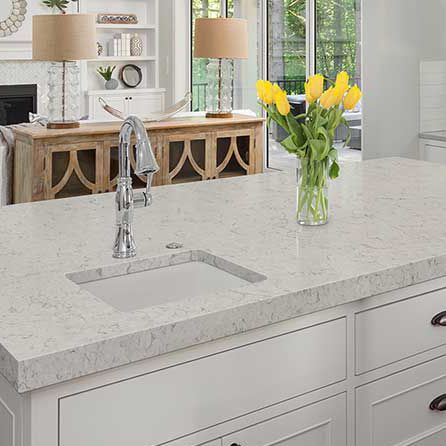
Do Engineered Quartz Countertops Stain? – Use Natural Stone

Do Engineered Quartz Countertops Stain? – Use Natural Stone

Quartz is scratch- and stain-resistant choice in countertops
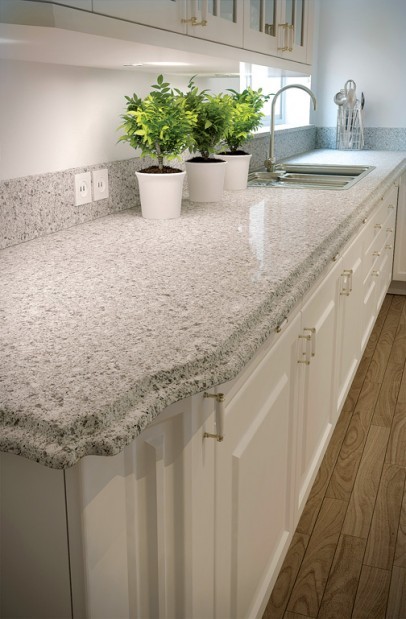
HanStone Quartz USA Most Stain Resistant Countertop Material: No
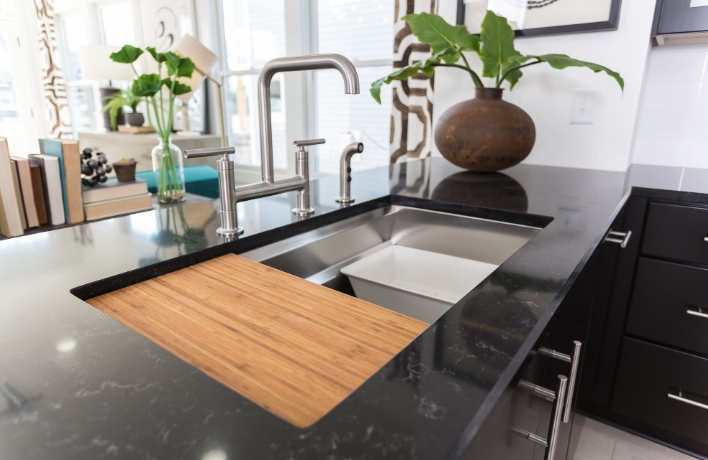
Related articles:
- Quartz Kitchen Countertops Cost
- Quartz Kitchen Countertops Installation
- DIY Quartz Countertop Installation
- Kitchen Remodel Quartz Countertop
- Backsplash Ideas For White Quartz Countertops
- Chocolate Brown Quartz Countertops
- What Color Quartz Countertop With White Cabinets
- Blue Quartz Countertops Kitchen
- Cambria Natural Quartz Countertops
- Quartz Countertop With Undermount Sink